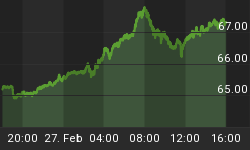The war on climate change is on, but the world’s utility-vehicle-gas-guzzling habit is preventing green measures from making enough headway.
SUV sales across the globe last year reached a total of 42 percent of all car sales, the head of the International Energy Agency, Fatih Birol said this week. These vehicles, Birol added, emit 25 percent more carbon dioxide than smaller cars.
And yet we keep buying them.
During his keynote speech at the Baker Hughes AM2020 conference, Birol once again reminded not just the oil and gas industry, but also those using its products, that containing the worst effects of climate change will require a lot more effort than governments and the public are putting into it now—and may require putting to rest our SUVs. But people are still shifting toward large vehicles.
How do we change this?
The IEA sounded the SUV alarm last year, when it said sales of smaller passenger vehicles were showing signs of a slowdown and this could spark a false hope that we are cutting CO2 emissions from one of the largest contributors of emissions globally.
Yet the slowdown was specific to smaller passenger cars.
SUV sales have doubled in the last decade. From 35 million in 2010, there are now 200 million SUVs around the world. That’s 60 percent of the increase in total car sales in the period. It seems that people really like their SUVs.
Emissions, in the meantime, are naturally rising. Even with hybrid SUVs that are gaining in popularity in North America and Europe, emissions from that segment of the global fleet rose from 0.15 gigatons of CO2 to about 0.7 gigatons in the last decade. The IEA put it bluntly:
“SUVs were the second-largest contributor to the increase in global CO2 emissions since 2010 after the power sector, but ahead of heavy industry (including iron & steel, cement, aluminum), as well as trucks and aviation.” Related: Is Tesla Heading To $1,000?
The most obvious answer to the question of how to make people stop buying SUV is “Just make them electric.” Indeed, major global carmakers have a solid pipeline of electric vehicles for the next few years and they are putting their focus on SUVs, the Wall Street Journal reported earlier this month. From BMW’s iX3 through Ford’s Mustang SUV, an electric version of the Wrangler and even an electric Hummer, carmakers are in rush to give drivers what they want: large, powerful cars, but free from emissions.
Isn’t this wonderful?
It depends. According to a sales report compiled by AutoNXT, the bestselling SUV in the United States in the first half of last year was the Toyota RAV4. The price tag for the 2020 RAV4 starts at $25,850, and this is among the highest base price for compact SUVs. The hybrid version of the RAV4 begins at $26,970.
And the electric version? The electric version saw two generations, with a decade’s gap between then and then in 2014 Toyota said it was discontinuing the model.
But what about the electric SUVs that are there? The BMW X3 starts at $41,950 in the United States. The electric version does not have a price tag yet, but CNBC cited the price of a comparable vehicle, the Audi e-tron, in a report about the iX3. The e-tron with the large battery pack starts at $74,800. Certainly, both the BMW and the Audi are luxury cars. Ford’s Mustang Mach-E seems more affordable at a base price of $43,895 but it is still a lot more expensive than a Toyota or a Honda, the two most sold SUV brands in the United States last year.
On the one hand, this might not be as big a problem as it seems. SUVs are widely perceived as a token of status and wealth, and people who care about being perceived as wealthy would be willing to spend as much as necessary on those tokens, enjoying the added benefit of being seen as wealthy and environmentally conscious.
On the other hand, the latest figures on EV sales in general suggest people are still not too enthusiastic about the whole electric transition. Total plug-in sales last year stood at 2.2 million, InsideEVs reported this week. This was 10 percent higher than a year earlier, but the plug-in vehicle figure also includes hybrids and hybrids are not purebred EVs, the kind we might well need to embrace fully to help reduce rising emissions. Related: Why Russia Is Trading Influence For Profit In Africa
The good news in that data is that the majority of these plug-in cars that were sold last year were, in fact all-electric, at 74 percent. That’s a lot of purebred EVs. At the same time, SUV sales in the United States alone last year topped 8.2 million. Even if most of these were hybrid and there is no data readily available that suggests that, these are still cars with ICE engines, meaning emitters.
If we are to believe the IEA’s Birol and all the climate scientists saying we need to double and even triple down on our efforts to contain climate change, carmakers should discontinue their ICE SUV production immediately and start selling e-SUVs only.
Of course, this is impossible and it seems impossible to make people start liking smaller, less powerful cars over SUVs. As with the whole EV transformation, change will be slow in coming—the sales data on EVs clearly points that way. Despite upbeat forecasts about dozens of millions of new EVs on the roads in a few years, sales have been rising at a more moderate pace. Chances are electric SUVs will have a similar fate, with most drivers still opting for the cheaper and dirtier versions until they are on the market.
By Irina Slav for Oilprice.com
More Top Reads From Safehaven.com:
















